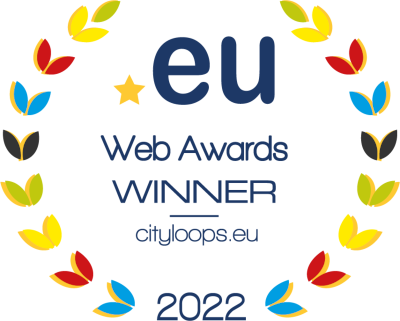Business cases
The industrial sector traditionally seizes all the opportunities to optimise each step of the production system in a linear market model, developed on a principle of abundant and available raw primary resources, without including in the final price the cost of environmental and social damages. “Closing the loop” and transitioning to a circular economy entails the development of new economic activities, by shifting the value chains of today's world, which are still structured in a linear way.
The CityLoops project has focused on supporting the demonstration actions with sound business cases that have ensured economic viability. This replication package contains various business cases from different demonstration actions. For each developed business case, the project has been looking at cost structures and revenue streams, identifying potential customers (or end-users) and evaluating internal capacity. The examples also rely on market assessments, in particular in comparison to non-circular (or rather linear) alternatives, and include environmental, climate and social evaluations.
Lessons learnt
There are many ways to consider if the business cases were successful, as it depends on the indicators to measure their success (economic, but also social and environmental). The economic profit, or at least the balance, remains crucial to achieve the upscaling of these innovative approaches. Even though the contexts, the cases, the steps of the value chain and the materials were different, there are common rules to underline:
- Cooperation with private companies, willing to innovate is easier to implement when public and private entities work hand in hand. Although the drivers can be environmental, local authorities also need to rely on companies that develop competitive solutions. The successful business cases demonstrate that partnerships between local authorities, public clients and private companies willing to develop circular solutions are a key success factor.
- Early market dialogue is required. It ensures the pre-selection of companies that public procurers can cooperate with, once the tendering process is launched.
- National context and demand: the national regulatory framework plays an important role in promoting circular profitable business models. By pushing demand, it drives suppliers to develop competitive circular products or services and to align the prices on linear solutions. In a free market, it is important to give incentives to shape the national market. Local authorities have the capacity to influence the national context and regulatory framework. By leading the transition with experimental projects, the demand for circular products and buildings will increase, and the market will more and more change accordingly.
- Risk management and responsibility analysis: Effective risk management is a critical component of the planning process in circular projects. The client should conduct a risk mapping exercise at the outset of the project to identify any risk elements, highlighting the responsibilities, risks, and consequences along the project. This might help to minimise the negative impacts of a triggered risk. It is recommended to maintain this open dialogue with key actors in the value chain proactively and transparently from the early stage of the project.
- Circular competitive business cases already exist: depending on the national context, the stream conditions, access to natural (virgin) resources, price formation etc., some demonstration actions have showcased that circularity could be competitive:
- Recycling concrete can either be done for approximatively the same cost as using new concrete, or it can generate savings if crushed and reused on-site (Roskilde, Høje-Taastrup and Mikkeli).
- Keeping soil on-site or reusing it locally generates large economic and CO2 savings from reduced transport (Apeldoorn, Høje-Taastrup, Roskilde and Bodø).
- Using a local deposit for intermediate storing of masses can be a good business case (Apeldoorn, Høje-Taastrup, Roskilde and Bodø).
- Soft stripping and proper organisation can create business for reuse of demolition items of certain quality – often competitive with new items (Mikkeli).
CityLoops instruments
Both instruments developed in the context of this replication package can be used as inspiration for creating and evaluating business models and cases.
CityLoops demonstration experiences
The demonstration actions have been used for studying business cases on the ground. To ensure replicability and to highlight the challenges faced and the success factors, reports on different materials and steps of the value chain have been produced:

